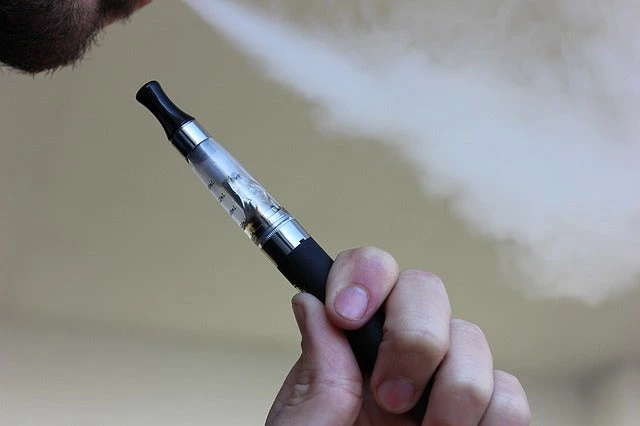
Regulating tobacco use using excise taxation, restrictions on smoking in public places, and restrictions on youth access and sale of tobacco products is now a widely-accepted policy action to prevent its harmful health effects. The ruling by the United States Federal District Court that ordered the country’s four largest cigarette makers to make “corrective statements” to inform the public about the harms of cigarettes, including light and low-tar cigarettes, which began on November 26, 2017 for one year, using prime-time television commercials and full-page ads in newspapers, only confirms what is already known on the basis of accumulated evidence over the past half century: the manipulation of cigarette design and composition to ensure optimum nicotine delivery have led to addiction, ill health, and premature mortality and disability among smokers and among those exposed to secondhand smoke. And the recent decision by the Vatican to ban duty-free cigarette sales is a good example of how societal attitude towards tobacco use has changed: a sovereign state is willing to forego revenue from products that clearly harm people's health.
In recent years, policy discussions at the global level on whether e-cigarettes and other smoke-free nicotine delivery systems should be classified as tobacco products, and hence be regulated in the same way as cigarettes, have acquired great importance because their production is at the core of new diversified business plans of tobacco companies alongside the production and marketing of cigarettes. While the e-cigarette, a battery-powder device that heats a liquid containing nicotine into a vapor that is inhaled like a cigarette, is being touted as a harm reduction technological innovation to protect smokers from the ill effects of cigarettes, which continue to be marketed globally, we must ask: Is there strong scientific evidence that justifies this claim and exempts e-cigarettes from being regulated as another tobacco product?
A review published in the New England Journal of Medicine concluded that “At present, it is not possible to reach a consensus on the safety of e-cigarettes except perhaps to say that they may be safer than conventional cigarettes but are also likely to pose risks to health that are not present when neither product is used.” The results of a comprehensive review of available evidence done by U.S. Surgeon General in 2016, went further by concluding that tobacco use among youth and young adults in any form, including e-cigarettes, is not safe, and that in recent years, e-cigarette use by youth and young adults has increased at an alarming rate, becoming the most commonly used tobacco product among youth in the United States. The report also warned that since e-cigarettes are tobacco products that deliver nicotine, which is a highly addictive and toxic substance, they may pose the risk that many of today’s youth who are using e-cigarettes could become tomorrow’s cigarette smokers to continue to feed their nicotine addiction. Moreover, nicotine exposure can harm brain development in ways that may affect the neurological development and mental health of children and adolescents.
The regulatory response to e-cigarettes in the United States and the European Union (EU) is clear in signaling the potential health risks of e-cigarettes. E-cigarettes, as other cigarette products, now fall under the regulatory jurisdiction of the U.S. Food and Drug Administration. This is in accordance with the U.S. Surgeon General Report recommendations that comprehensive tobacco control and prevention strategies for youth and young adults should address all tobacco products, including e-cigarettes, and that further reductions in tobacco use and initiation among youth and young adults are achievable by regulating the manufacturing, distribution, marketing, and sales of all tobacco products—including e-cigarettes. In May 2017, the EU's Court of Justice cleared new legislation that also puts e-cigarettes under similar regulatory pressures as traditional cigarettes, including a broad ban on advertising and other promotional activity. The EU's updated Tobacco Products Directive, which brings e-cigarettes under this strict regulatory umbrella for the first time, was drafted a couple of years ago, but it was challenged by several important players in the tobacco industry.
The World Health Organization (WHO) and the Secretariat of the Framework Convention on Tobacco Control (FCTC) have been clear in recommending that countries treat and regulate e-cigarettes no differently than other tobacco products. The World Bank Group (WBG) has had an unambiguous global policy on tobacco since the 1990s that precludes lending, provision of grants, or guarantee investments, loans, or credits for tobacco production, processing, and marketing. As an original supporter of the FCTC, the WBG also provides technical assistance to governments to increase taxes on tobacco products as a win-win policy measure for both public health and domestic resource mobilization.
I believe that all of us working to advance the great cause of global health should not waiver in our commitment to support the development of healthy societies. In doing so, we should keep in mind that tobacco use is the world’s leading preventable cause of death, killing 7 million people per year. Moving forward, we should be guided by the lessons from history and available scientific evidence and redouble our efforts to support globally the full implementation of the FCTC’s demand and supply reduction measures to control tobacco use in all its forms, including e-cigarettes.
Related:
United Nations Global Compact
“Why Tobacco Companies Are Paying to Tell You Smoking Kills”
1964 U.S. Surgeon General’s report on Smoking and Health
2014 U.S. Surgeon General’s report “The Health Consequences of Smoking—50 Years of Progress”
“Phishing for Phools”. The Economics of Manipulation & Deception
“Golden Holocaust: Origins of the Cigarette Catastrophe and the Case for Abolition”
“The Cigarette Century: The Rise, Fall, and Deadly Persistence of the Product That Defined America”
Holy smoke: Vatican bans duty-free cigarette sales
The Health Effects of Electronic Cigarettes
E-cigarette use among youth and young adults: a 2017 report of the U.S. Surgeon General
EU's highest court upholds restrictive new law on cigarettes
Tobacco Taxation: At the Crossroads of Health and Development
Infographic: Stop Smoking It’s Deadly and Bad for the Economy
WBG Global Tobacco Control Program website


Join the Conversation